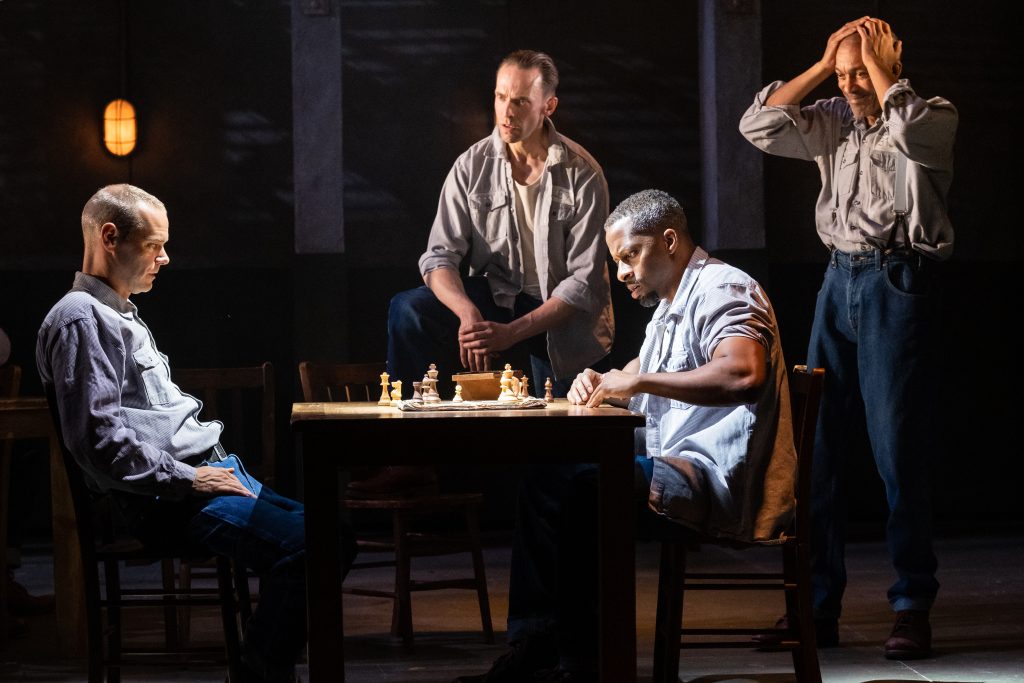Aylesbury Waterside – until Saturday 8th April 2023
Reviewed by Julia Spargo
2**
Bringing one of the British public’s best loved films to the stage was always going to be an ambitious project. The story of a man, wrongly imprisoned for the murder, forging a strong friendship with a fellow inmate, both the original novella by Stephen King (Rita Hayworth and the Shawshank Redemption) and the subsequent 1994 film are harrowing and moving. Unfortunately, this production, adapted for the stage by Owen O’Neill and Dave Johns, falls short of packing the emotional punch.
The play opens with three new inmates arriving at Shawshank State Prison, one of whom is Andy Dufresne (Joe Absolom), convicted for the murder of his wife and her lover. Narrated by established inmate, Ellis ‘Red’ Redding (Ben Onwukwe), the menace of the prison is frequently alluded to but not brought to life; sound issues in this performance meant the audience were unable to hear Red’s monologue, and the prison guards make unconvincing bullies, to the extent that when they are responsible for the death of an inmate later in the play, it comes as a huge shock.
The lack of menace continues throughout; an on-stage assault by on Andy by Bogs Diamond (Jay Marsh) and other inmates does not portray the sheer menace of the attack and has to be narrated by Red as “gang rape”. A further beating later in the play is almost slapstick. When Andy reappears in the Warden’s office after having spent some weeks in the infirmary as a result of the attack, there is no wariness or change in his demeanour. The set remains the same for almost the entire play but the opportunity to use this to deepen the sense of pervading threat from both staff and fellow inmates is lost. Warden Stammas (Mark Heenahan) has a voice so deep that many in the audience were struggling to hear him and the staging exacerbates this as his back is to half the audience during most of his scenes. Rooster (Leigh Jones) has a cackle that comes across as irritating rather than psychopathic. The most convincing character is Brooksie, the prison librarian. He provides some much-needed light moments, and Kenneth Jay is persuasive as the institutionalised, arthritic curmudgeon.
There are clever moments. The way a “wall” raises to reveal a murdered inmate is shocking and well-executed. Music throughout the ages is used during each scene change to show time progressing where costumes cannot; the inmates’ attire remaining the same. The second half definitely picks up in pace, with moments of humour and better character development. The ending is a good contrast to the dullness of the prison setting, but not as moving anticipated. Nevertheless, the themes of compassion, friendship and hope are what this production depicts well in the final scene. An ambitious project, indeed

